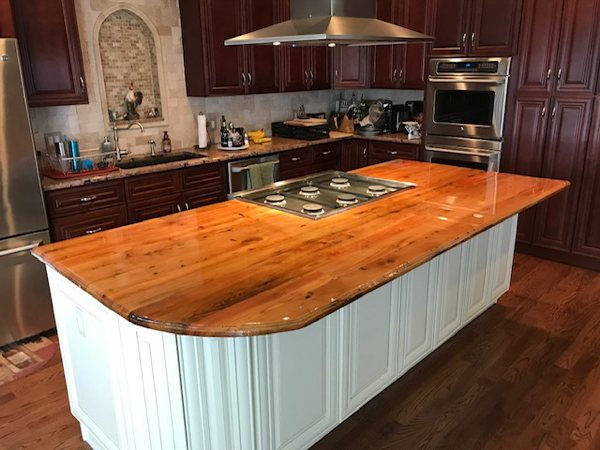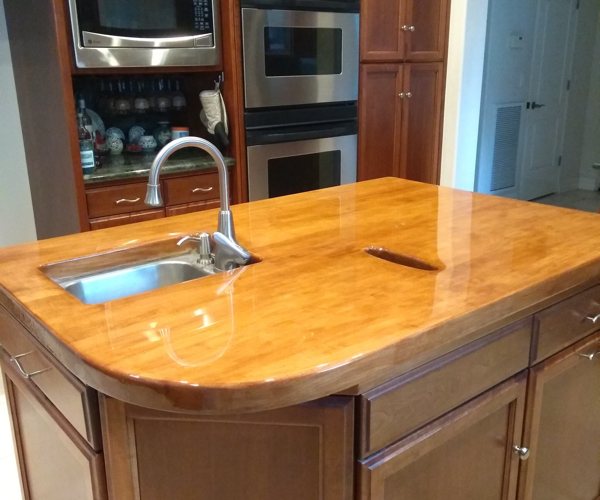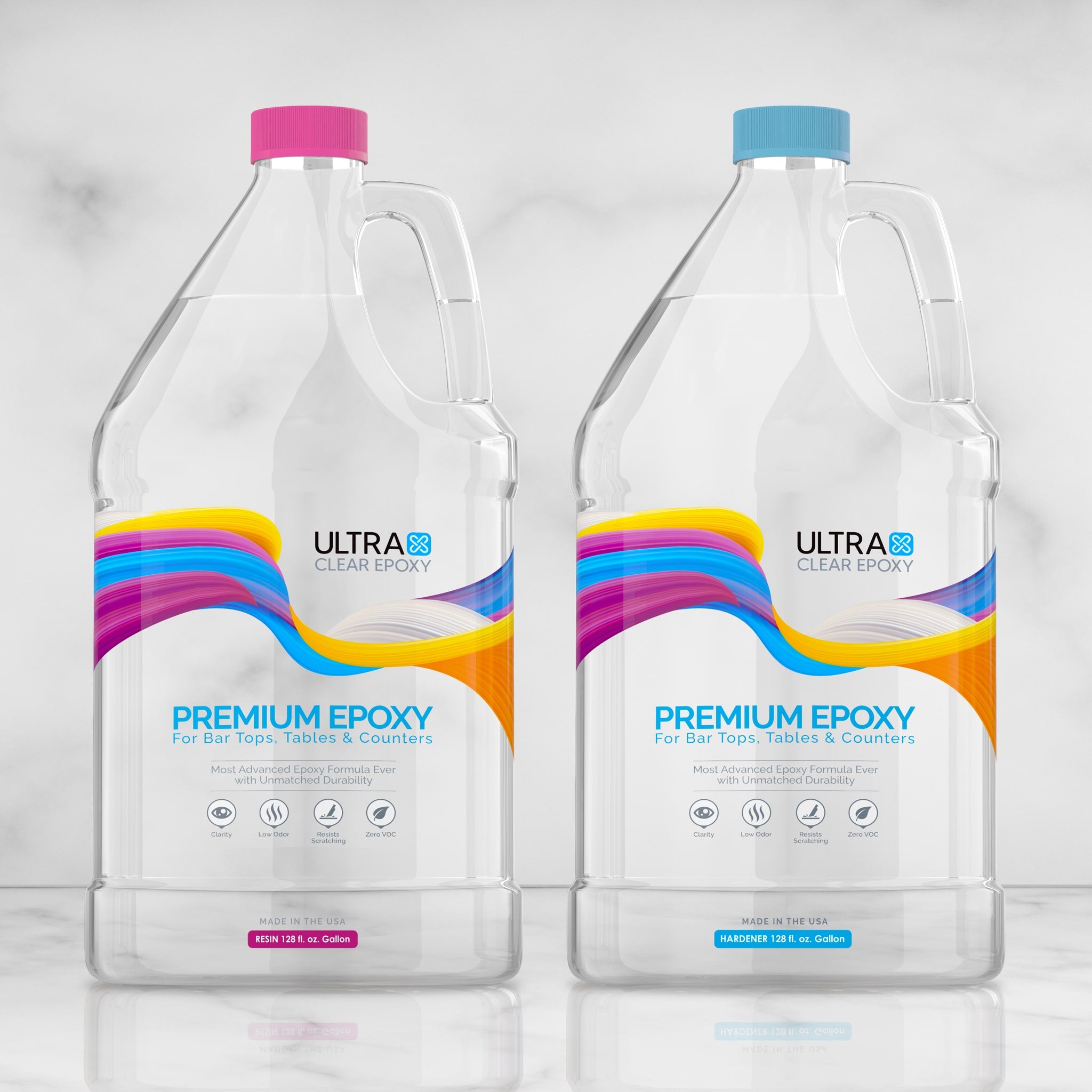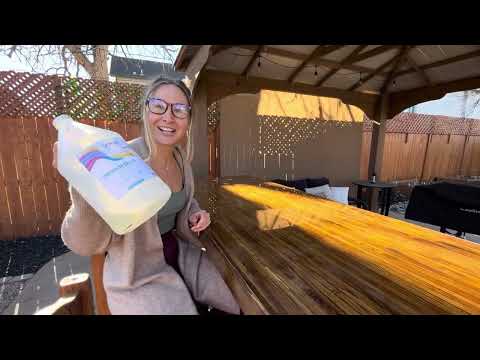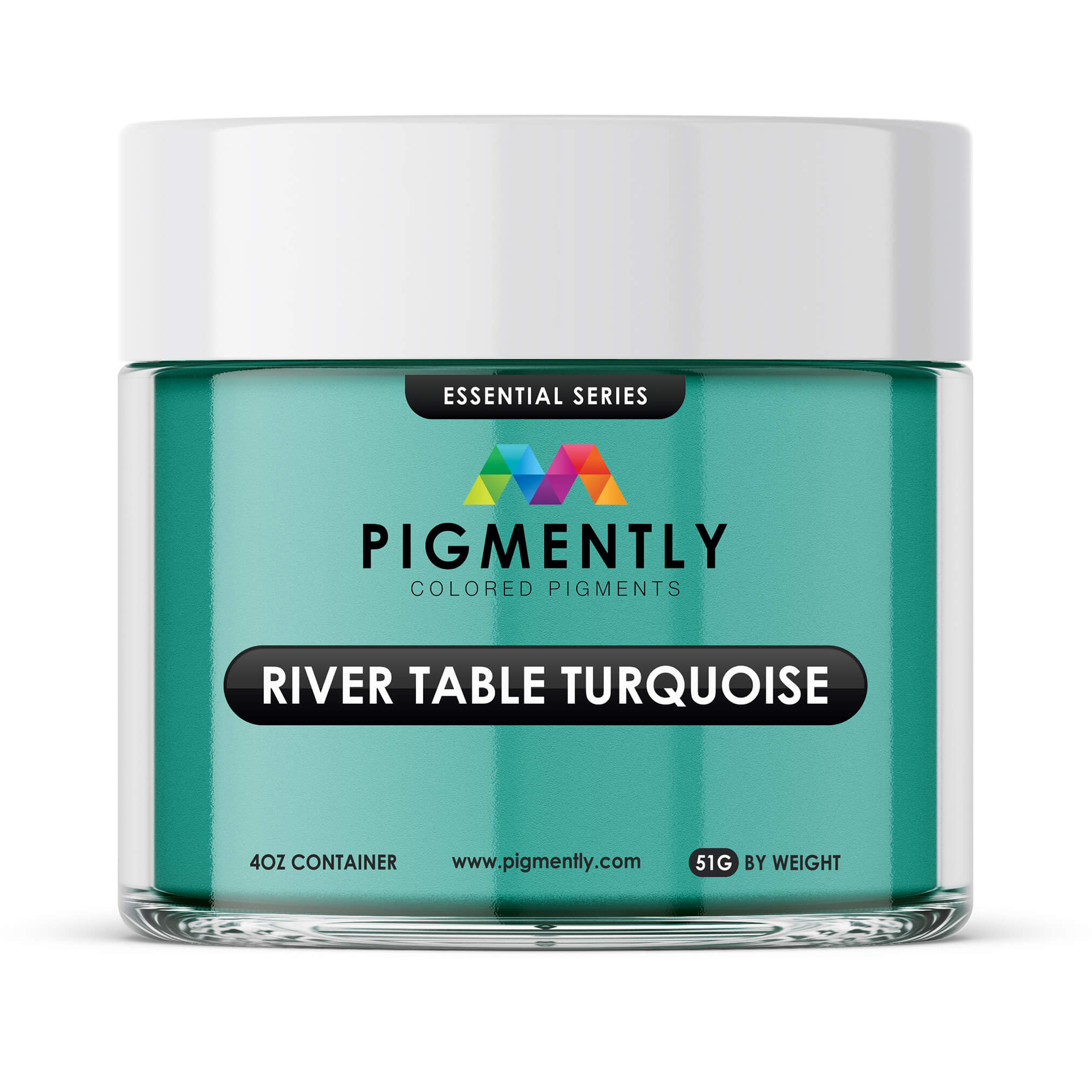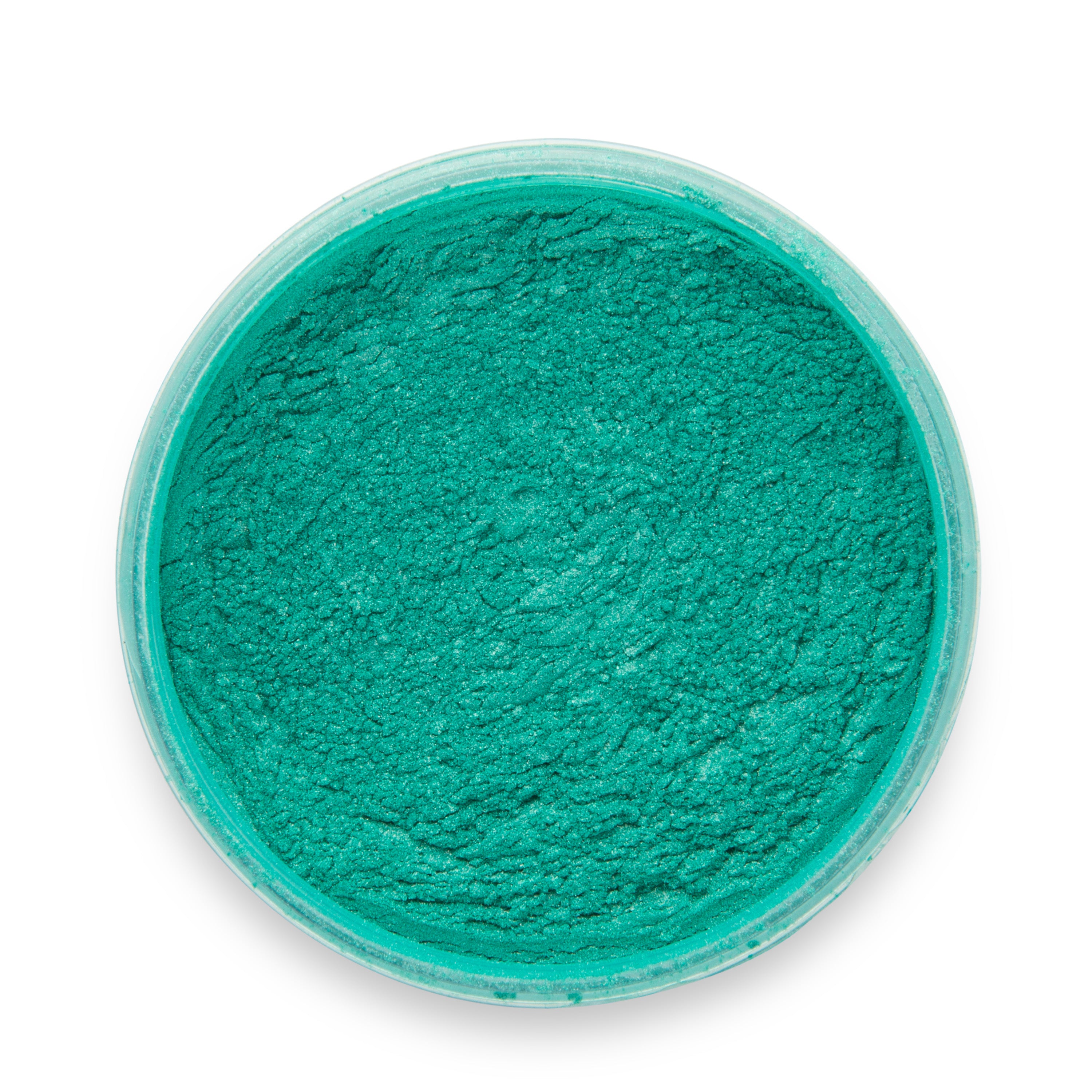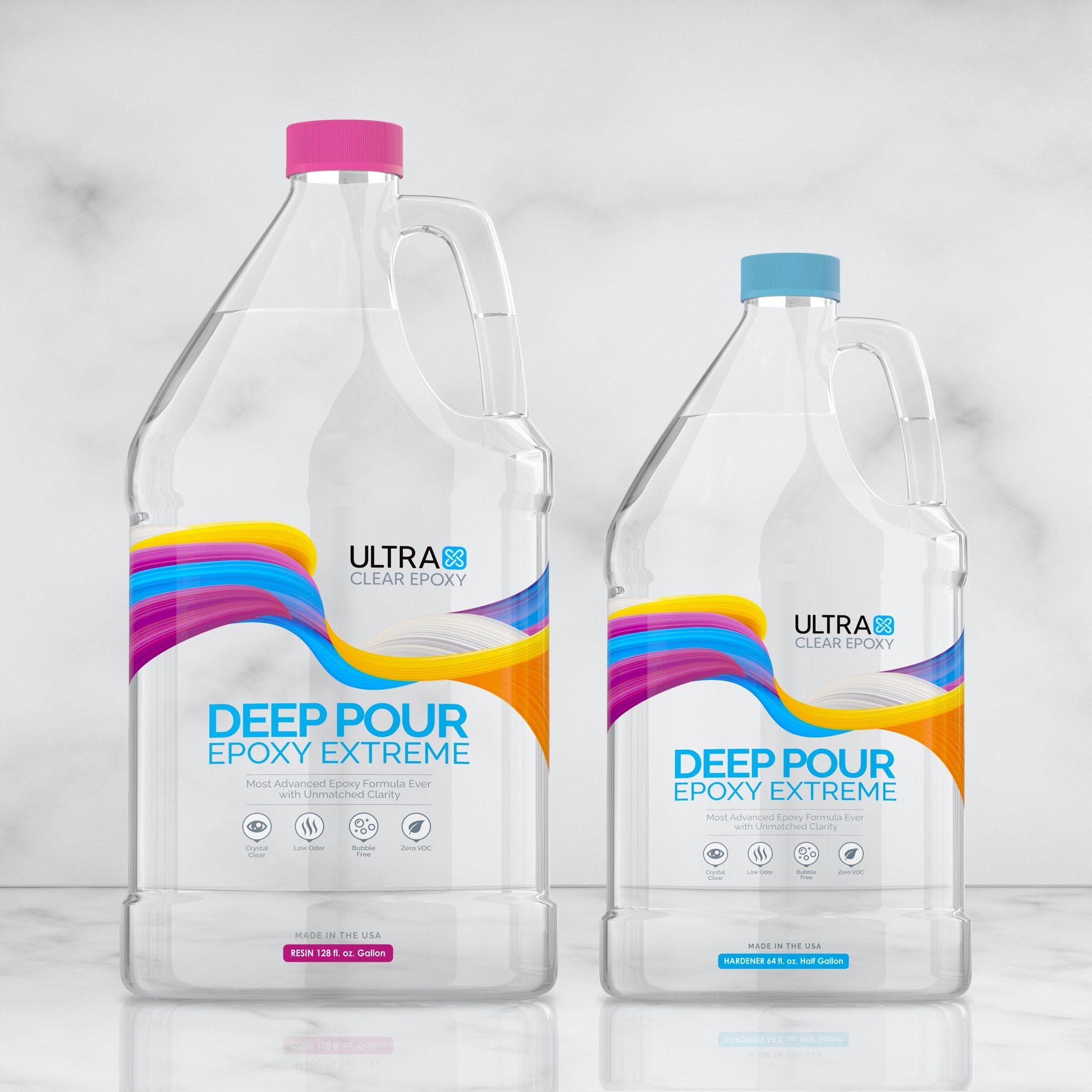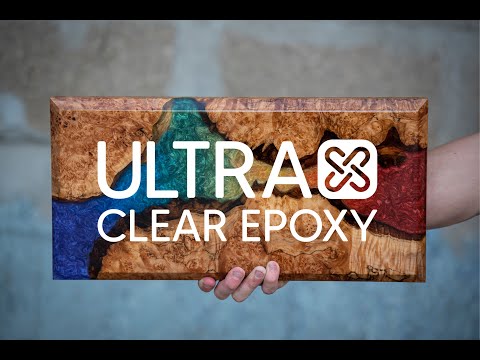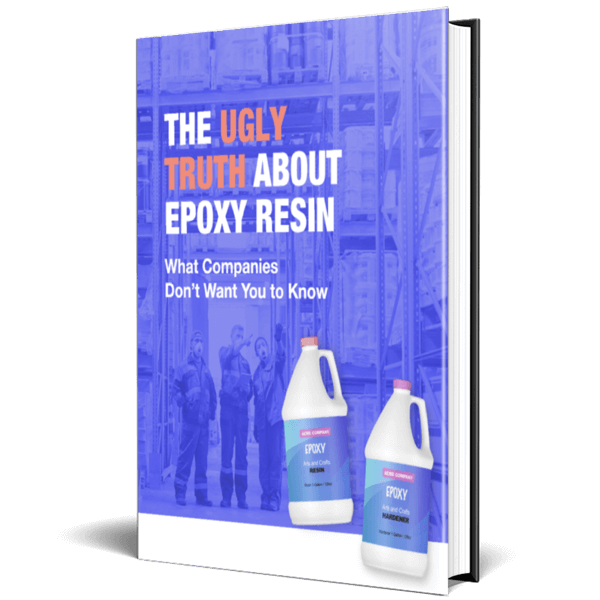How well an epoxy countertop can hold up over a period of many years is useful information when deciding whether such a fixture is right for your home or business.
Though it's true that epoxy countertops are beautiful, durable, and remarkably resilient against a variety of different stressors, do they stay that way long term?
In this article, we'll explain how epoxy resin tends to fare under regular use as time passes by. We'll then discuss about ways to extend its lifespan even further, before finally providing an easy method to restore your epoxy countertop when the time comes.
Do epoxy countertops last?
Yes, epoxy countertops last for many years under typical use.
A premium epoxy resin, such as our UltraClear Bar & Table Top Epoxy, will last for a minimum of 7 years without needing a restorative coating or significant touch-up.
Epoxy resin is inherently sturdy, with excellent performance in the following areas:
- Scratch/impact resistance
- Waterproofing and moisture resistance
- Low upkeep/maintenance requirements
- Visual clarity and aesthetic appeal
In addition to those features, epoxy resin also handles heat well and is highly resistant to staining.
Scratch and impact resistance
Epoxy resin is highly scratch resistant and impact resistant.
A high-quality resin will perform better than an ordinary or mediocre resin in these two categories. For instance, our UltraClear Bar & Table Top Epoxy, when tested under the Shore Hardness scale with a Type-D durometer, measured a 98 out of 100 hardness rating—that's a nearly perfect score.
When used in high-traffic environments such as bars or restaurants, epoxy resin holds up very well long term with proper care.
Waterproofing and moisture resistance
Epoxy resin, due to its ultra-smooth, tightly knit surface, boasts an exceptional waterproofing property and moisture resistance.
Bar top epoxy is often used as a finishing option for substrate materials such as wood, granite, and concrete, each of which are highly susceptible to staining and moisture damage.
In truth, epoxy is so effective at waterproofing that it's commonly used as a core component for various watercraft, as well as in watercraft repair for sealing or mending damaged areas.
Low upkeep and maintenance requirements
Two other often understated benefits of using epoxy resin are its dependably low upkeep and maintenance needs. Most epoxy resins will require little attention after they've fully cured.
Whereas other sealants may require reapplication on a year or even semi-monthly basis, epoxy resin holds up well on a single coating for several years before needing reapplication.
Moreover, epoxy resin surfaces are incredibly easy to clean. The smooth surface of epoxy makes wiping up residues, smudges, and other types of messes almost effortless.
High visual clarity
One of the most appealing aspects of epoxy resin's appearance is its crystal-clear transparency.
Despite its immense strength, epoxy resin cures to an aesthetically glasslike finish. When properly mixed and poured, it will looks like glass but be far less fragile. This makes it a remarkable choice not only as a sealant for fixtures and furniture but also as a way to create stunning art.
But there's more to it than just that. Because of its clear, transparent nature, epoxy is an excellent medium for colorants. Unique powder pigments and liquid dyes can be used to imbue an epoxy resin batch with deep, vivid tones, and bright, vibrant colors.
Tips on keeping epoxy surfaces in good condition
You can get the most out of your epoxy surfaces by treating them properly. Fortunately, because epoxy is so formidable, there isn't much need to deliberately maintain it.
Still, we do have few small tips to give:
-
Keep your surfaces clean. You can avoid build up of residues and other debris by washing the surface as needed. Warm water and soap will usually do.
-
Don't use your epoxy surfaces for food preparation. This means no cutting food directly on the surface, and don't place super hot bakeware directly on the surface, either. You can use cutting boards for food preparation and trivets to place your bakeware on.
- Avoid direct sun exposure. Direct sunlight over long periods of time can cause epoxy to yellow. It's primarily a cosmetic difference, so if the color shift doesn't bother you—or if you've tinted your epoxy with pigments which avoid it—then this is less of an issue.
Additional Resources
Here are some additional resources you may find useful:
- Epoxy Resin FAQs: Countertops Edition - Our answers to common questions about epoxy countertop projects.
- Can you epoxy over old countertops? - Discover how easy it is to rejuvenate your old countertops with an epoxy finish.
- Spotlight: Epoxy kitchen countertops - See projects by real UltraClear Epoxy users!
Have questions? Want advice? Contact us!
If you have any questions about the lifespan of epoxy countertops, or if you'd like assistance in planning an epoxy project, please reach out to us at UltraClear Epoxy—our epoxy experts are ready to assist!
You can contact us via phone or email here. During business hours, you can also text chat online with one of our resin specialists by clicking the Help button at the bottom of your screen.
In our online store, you'll find a variety of useful tools and supplies, ideal for resin projects, plus our award-winning UltraClear Bar & Table Top Epoxy and our UltraClear Deep Pour Epoxy.

